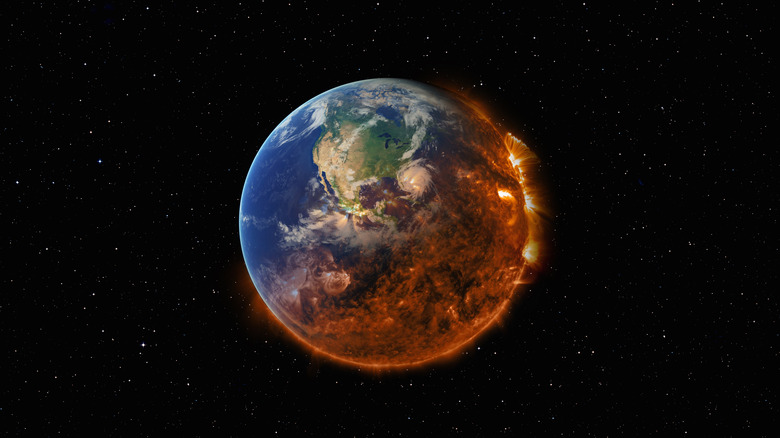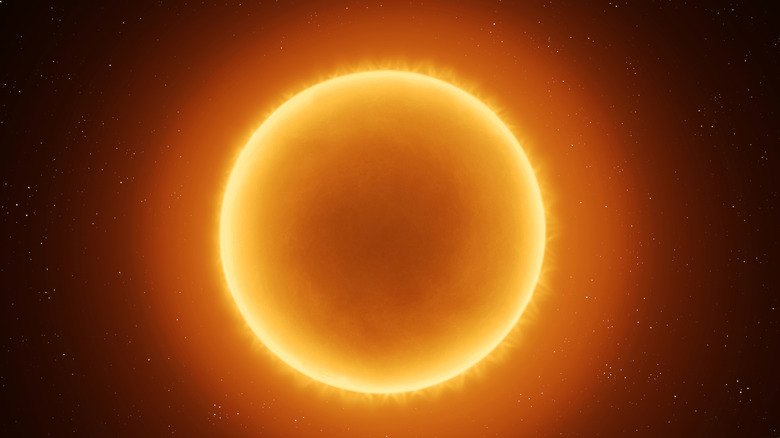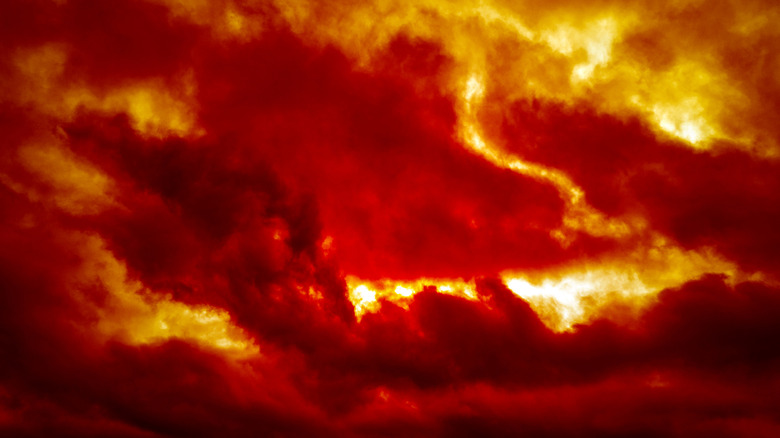Neil deGrasse Tyson's Grim Prediction For The End Of The World
Strange though it may be, we all have a morbid fascination with our ultimate doom. Predictions about the end of the world continue to command our attention, proving our enduring obsession with unthinkable scenarios. Stephen Hawking made several grim predictions about the end of the world during his lifetime, and due to a combination of the man's esteemed standing and our aforementioned fascination with our impending demise, a lot of people paid attention.
For Hawking, who passed away in March of 2018, humankind had only about 100 years before we would need to colonize another planet. The physicist saw our world eventually becoming a giant ball of fire and consistently urged that action was needed to preserve our species. But Hawking isn't the only prominent intellectual to warn of what will happen to our planet in the near future.
Neil deGrasse Tyson likes to publicly discuss various ways we could all perish, such as the time he expounded the terrifying scenario that would ensue should the Earth stop spinning. But the astrophysicist has plenty more grim prophecies for those interested, and at one point sounded eerily similar to Hawking when he predicted that our planet has an alarmingly short life span.
Neil deGrasse Tyson describes the death of the sun
The sun won't explode when it eventually dies. Instead, it will be a much slower process that's every bit as terrifying as what would happen if the sun actually did explode. While this is a fairly horrific thing to imagine, for Tyson the fact that we can predict these sorts of events using the tools of astrophysics is, at least, something to be celebrated.
Writing for Natural History Magazine in June 1996 (via the Neil deGrasse Tyson website) Tyson provided three "prognostications" about how the world might end, one of which involved the eventual and certain death of the sun. The physicist used his article to explain how this cataclysmic event would result in an apocalyptic scenario here on Earth, writing, "Our atmosphere will evaporate away into interplanetary space and the oceans will boil off as Earth becomes a red-hot, charred ember orbiting deep within the Sun." Lovely stuff.
Thankfully, the sun is thought to have a 10 billion year life cycle, and we're currently only about halfway through. But in more recent years, Tyson has offered what is perhaps an even more upsetting prediction about similarly cataclysmic events that could befall our planet in a much shorter time span.
Neil deGrasse Tyson doesn't think we have long left on Earth
While physicists continue to grapple with ideas about the beginning of our universe and how something could seemingly arise from nothing, as writer Christopher Hitchens used to say, a lot of nothingness is surely coming our way. Our prolonged existence is by no means assured and according to Hawking and Tyson, we probably don't have very long until that "nothingness" arrives.
Appearing on "Piers Morgan Uncensored," the physicist was asked how long he thinks the human race has. After clarifying that we don't know enough about "the forces that will end it all," he replied with a curt "we might have 100 years on Earth at the rate we're going." For Tyson, climate change is the most pressing issue we face. When asked about the so-called "big rip" — the theory that the universe could expand so rapidly in the future that it eventually tears open — the physicist said "we can't stop climate change apparently, and you're worried about the big rip? ... we're pretty incompetent on so many levels."
Tyson is far from the only one to warn that humanity has less than a century before we have no choice but to deal with a major existential threat. Hawking himself made the same prediction and Space X's Elon Musk has said he plans to establish space colonies within the next 100 years. Meanwhile NASA has warned that unless we take steps to reduce emissions, global temperature will rise by 4.5 to 8 degrees Fahrenheit by the year 2100. Even an increase of 4 degrees Fahrenheit would result in major changes to our world, with unprecedented heat waves, water scarcity, and the irrevocable loss of certain forms of biodiversity. As such, while Tyson and his cohort's warnings might seem alarmist, there really is reason to be concerned that humankind is headed to "nothingness" much more quickly than we might think.


